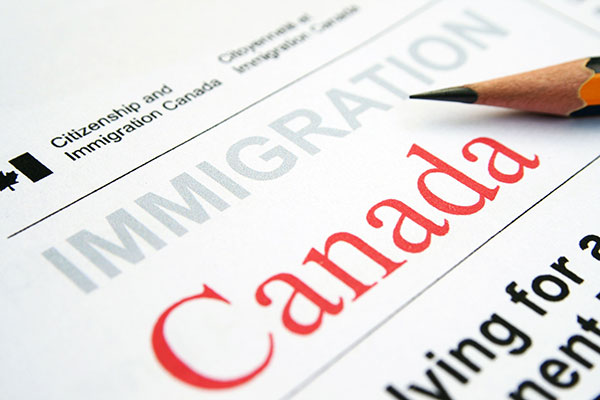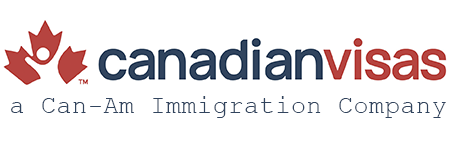
Apr 15, 2021 | Canadian Experience Class, Featured, Immigrate to Canada, In the News, New Immigration Programs, Permanent Residency, Working In Canada
New Immigration Programs Pave Way for Health Care and Essential Workers
Exciting news! The Honourable Marco E. L. Mendicino on on April 14th, 2021 announced that there will be a focus on new pathways for temporary workers in healthcare, essential workers, and international graduates who are already residing in Canada.
“The pandemic has shone a bright light on the incredible contributions of newcomers. These new policies will help those with a temporary status to plan their future in Canada, play a key role in our economic recovery and help us build back better. Our message to them is simple: your status may be temporary, but your contributions are lasting—and we want you to stay.” Says Mendicino.
Effective May 6th 2021, Immigration, Refugees and Citizenship Canada (IRCC) will launch 6 new pathway streams for permanent residency for over 90,000 health care, essential workers and international graduates who have been actively contributing to Canada’s economy. Including the French-speaking temporary residents, these workers and graduates who are already in Canada possesses the skills and experienced needed to fight through the pandemic and to accelerate Canada’s economic recovery. These new streams will pave the way for thousands of new immigrants to receive Canadian permanent residence status.
IRCC will be accepting applications through the following 3 streams:
- 20,000 applications for temporary workers in health care
- 30,000 applications for temporary workers in other select essential occupations
- 40,000 applications for international students who graduated from a Canadian institution
To be eligible for the three new streams announced, temporary workers must have at least one year of Canadian work experience in a health-care profession or in select essential occupations. International students must have completed an eligible Canadian post-secondary education within the last 4 years, no earlier than January 2017. All workers and graduates will need to meet the language proficiency of at least CLB 4 in English or French and the test results must be no less than two-year-old when application is received.
To promote Canada’s official languages, three additional streams with no application cap for healthcare workers, essential workers and international graduates who are French-speaking or bilingual in English and French. Candidates will need to meet the same requirements for the health-care, essential occupations and graduates in addition to French language proficiency of at least CLB 4 and the evaluation must be no less than two years old when the application is received.
The 6 new streams will remain open until November 5th, 2021, or until they have reached their application cap (not including the French-speaking or bilingual candidate applicants). The announcement of these new streams aims to help achieve Canada’s 2021 immigration Level’s plan, which is expected to welcome 401,000 new permanent residents. The plan will help create jobs and drive long-term growth in Canada. We have already seen the historical federal drawing which invited all 27,332 candidates in the Canadian-Experience Class Express Entry pool. Canada has welcomed over 50,000 new permanent residents thus far.
Need help or want to find out if you qualify?
Call our office today for a Free Consultation.

Jun 18, 2019 | Caregiver Program, Complete Representation, Featured, Immigrate to Canada, In the News, New Immigration Programs, New Laws, Temporary Foreign Workers, Work Permits, Working In Canada
New Caregiver Programs take effect today. Immigration, Refugees and Citizenship Canada (IRCC) has made changes to the In-Home Caregiver Program. These changes affect how employers hire caregivers and what is required as part of the approval process for both employers and caregivers. As of June 18, 2019 employers who are hiring caregivers from overseas are no longer required to submit an Labour Market Impact Assessments (LMIA) application for approval. Any LMIA application that was submitted on or before June 17, 2019 will continue to be processed and work permits for those caregivers will still continue to process as well. Caregivers who are currently in Canada on work permits that require extensions or those that are changing employers will require new LMIAs and new work permits.
There are now 2 new caregiver streams to consider when applying to hire a caregiver from overseas. Employers should consider starting early as it is expected to take about 12 months for a caregiver to arrive in Canada on a work permit.
Home Child Care Provider pilot (NOC 4411)
Home Support Worker pilot (NOC 4412)
General Program Requirements for Employers and Caregivers
- Employers will need to complete the job offer form
- Caregivers will need to submit an application for permanent residence along with a work permit application
- Caregivers can also apply for their spouses and children to accompany them to Canada and can obtain open work permits and study permits
- Caregivers must meet the eligibility criteria before applying for permanent residence, if eligible they will receive work permits to come to Canada
- Work permits will be valid for 3 years and will give the caregiver the opportunity to complete 24 months of full-time work as a caregiver
- Processing time can take up to 1 year for work permits to be issued.
- After the caregiver completes 24 months of work he/she will need to submit proof and their PR application will be finalized.
These new applications will require careful preparation by an authorized representative. It is strongly recommended that caregivers hire an authorized representative to ensure that their application will qualify and that they will achieve their goal of work permits and then eventually permanent residency in Canada.
For all inquiries, questions or concerns regarding these changes, please give us a call at +1-416-665-3939 or from inside Canada toll-free 1-888-808-7338.

Mar 4, 2019 | Caregiver Program, In the News, New Immigration Programs
As of Today, March 4, 2019 the Immigration, Refugees and Citizenship Canada is accepting applications under the new Interim Caregiver Program. The intake period is open from today until June 4, 2019. In-Home Caregivers who have worked in Canada full-time for at least 12 months, pass the English test requirements and have at least a High School diploma, may apply under the new Interim Program.
Our office specializes in caregiver work permits, employer LMIA applications, and applications for caregivers who wish to become permanent residents of Canada. If you are a Caregiver who has completed at least 12 months of full-time paid work experience as a caregiver, even if you did not yet take your English test, or receive your credential evaluation for your education level, We can help you apply today!
We suggest that you call our office today to speak with the immigration consultant and determine if you qualify to apply under the Interim Program. If you wait too long, you may not be eligible in the future, or you may be required to wait longer and then be subjected to meeting some unknown program requirements; which are expected to be published in the coming months.
Call us today for a free consultation on how we can help you apply under the new Interim Program 1 (888) 808-7338

Feb 24, 2019 | Caregiver Program, In the News, New Immigration Programs, Permanent Residency, Working In Canada
On Saturday February 23, 2019, the Trudeau government made a much anticipated announcement regarding the foreign in-home caregiver program. Under these new caregiver programs, caregivers will be allowed to bring their spouses and children with them to Canada. These permanent residence programs will be replacing the program which had a limit of 4 years and is due to expire on November 29, 2019.
The new pilot programs, called Home Child Care Provider and the Home Support Worker programs will be opening later in the year with a total limit of 5,500 applications.
For many caregivers who arrived to work in Canada recently, permanent residence was doubtful as the current caregiver pathways to permanent residence expire on November 29, 2019. Caregivers who were unable to complete 24 months of work experience or did not have a post-secondary education credential were not eligible to apply.
The Trudeau government also announced that for those caregivers who are already in Canada, there is now an Interim Program designed to create a path for them to become permanent residents. The Interim Pathway requires a caregiver to have completed at least 12 months of paid work experience as a caregiver and pass minimum English language requirements.
Caregivers now have 4 ways to qualify and apply for permanent residence
- Interim Pathway for Caregivers
- Must have completed at least 12 months of work experience
- Must pass minimum English requirements
- Caregiver for Children Program
- Must have completed at least 24 months of work experience
- Must pass minimum English requirements
- Must have an post-secondary education credential of at least 1 year
- Caregiver for People with High Medical Needs
- Must have completed at least 24 months of work experience
- Must pass minimum English requirements
- Must have an post-secondary education credential of at least 1 year
- Live-in Caregiver Program
- You hold a LCP work permit
- Your employer submitted the LMO/LMIA prior to November 30, 2014
- Completed at least 24 months of full time work

Jul 28, 2017 | Business Immigration, Immigrate to Canada, In the News, Investor Immigration, New Immigration Programs, Permanent Residency
The Start-Up Visa Program, which was launched in April 2013, invites immigrant entrepreneurs to bring their business to Canada. The program allows entrepreneurs to obtain permanent residence for themselves and their family. This pilot program was aimed at attracting pioneering foreign entrepreneurs who would contribute to the Canadian economy. After evaluation of the pilot, it has been determined that the Start-Up Visa Program is delivering on its goals to bring innovative companies into Canada, which in turn creates more jobs for middle-class Canadian workers in a range of industries. With the success of the pilot, the government has announced that it will make the Start-Up Visa Program a permanent part of the immigration landscape for 2018.
As of July 15, 117 principal applicants have received permanent residence through the Start-Up Visa Program. This represents 68 start-ups that were launched in Canada as a result of this program. At present, there are more than 50 Canadian venture capital funds, angel investor groups, and business incubators designated to participate in the program. Entrepreneurs who participated in the program in the first 3 years received over $3.7 million in investment capital from designated entities to help them grow their business in Canada.
Innovative entrepreneurs who wish to apply for permanent residence through the Start-Up Visa Program must meet the following minimum eligibility requirements.
- Prove your business is supported by a designated organization;
- Show your business meets ownership requirements;
- Meet the minimum language requirements (CLB 5 in all areas) in English or French; and
- Show sufficient funds to settle in Canada;
If you have an innovative business idea, you may be able to bring this idea with you to Canada. Take our free online assessment to determine your eligibility or contact us today to speak with a licensed immigration consultant.
Apr 14, 2017 | In the News, New Immigration Programs, Permanent Residency, Provincial Nominee Program
The Atlantic Immigration Pilot Program – a new three-year immigration program introduced last month – will allow 2,000 applicants and their families to apply for Canadian permanent residence in 2017. This employer-driven pilot program welcomes skilled workers and international graduates seeking to settle in one of the four Atlantic Provinces – New Brunswick, Newfoundland and Labrador, Nova Scotia, and Prince Edward Island. Canadian employers in one of these provinces are able to participate in the pilot program after being designated by the provincial government. In the early weeks of the pilot, over 200 employers have showed an interest in participating and 50 employers have already been designated to recruit foreign workers as of March 31. Designated employers are not required to obtain a Labour Market Impact Assessment prior to hiring foreign workers.
Applicants to the Atlantic Immigration Pilot Program are required to obtain a job offer from a designated employer and to develop a settlement plan with the help of a settlement service provider. These settlement plans are meant to aid newcomers to integrate by providing information and services. Being as it is an employer-driven program, the employers will play a large role in assisting foreign workers in the settlement process.
Applications are currently being accepted through one of three streams available under the Atlantic Immigration Pilot Program:
- The Atlantic High-Skilled Program (AHSP)
- The Atlantic Intermediate-Skilled Program (AISP)
- The Atlantic International Graduate Program (AIGP)
Skilled workers and international graduates who are interested in settling in an Atlantic province should contact our office for more information and to see if you qualify. We will assess your qualifications to determine the appropriate stream for you and assist you in the preparation and submission of your application. Those who do not fall under one of these streams may be eligible to apply under one of the Atlantic provinces Provincial Nominee Programs. For more information click here or take our free online assessment to see if you qualify to apply for permanent residence under the Atlantic Immigration Pilot Program.





 Useful Resources for Canada
Useful Resources for Canada
 Useful Resources for U.S.
Useful Resources for U.S.
 Our Local Immigration Services
Our Local Immigration Services